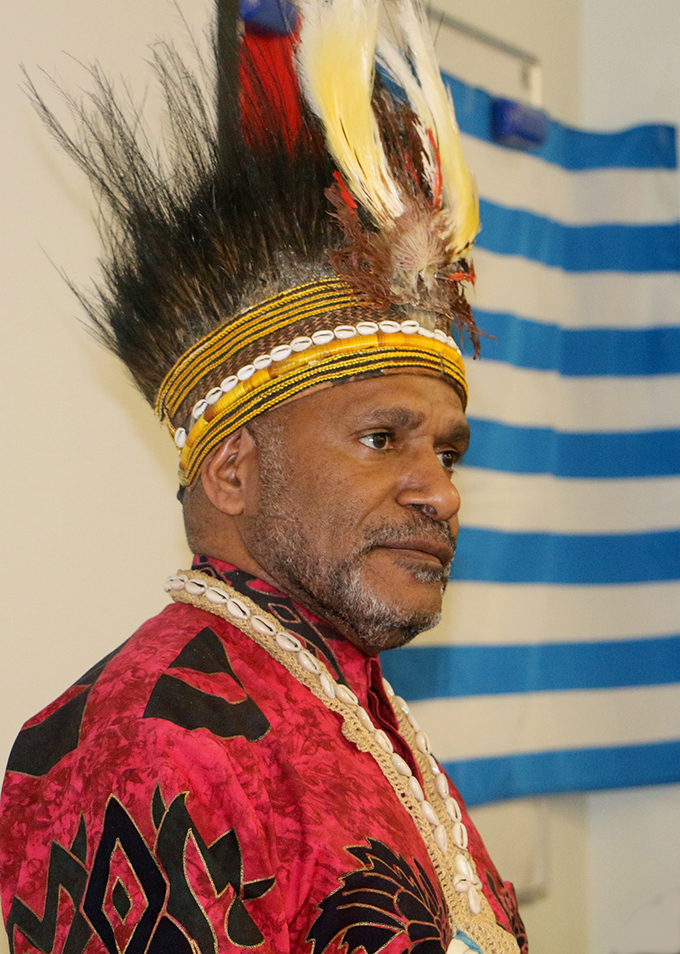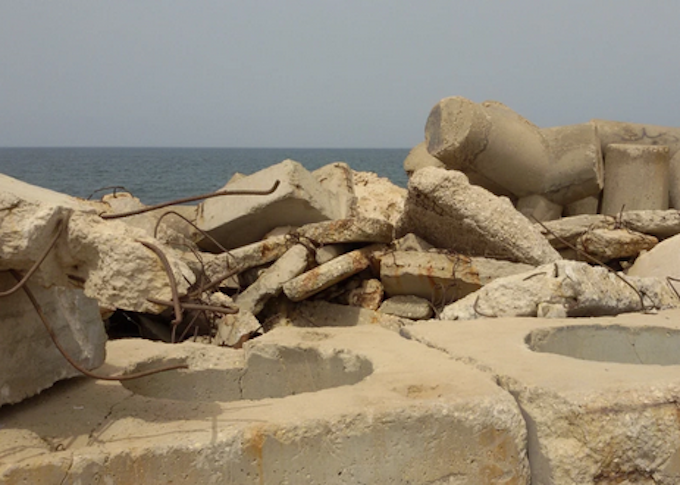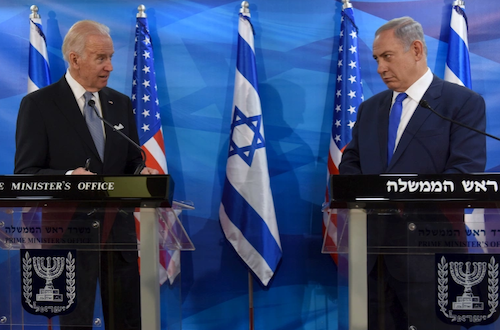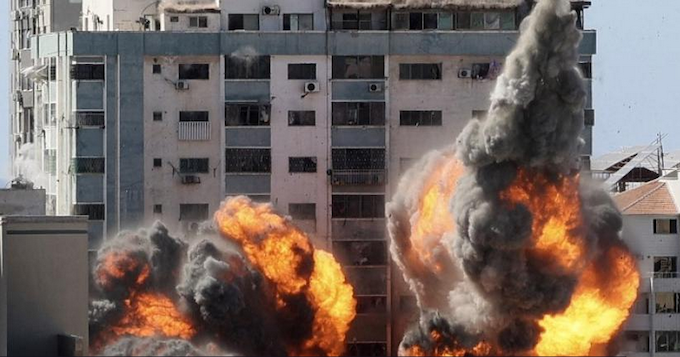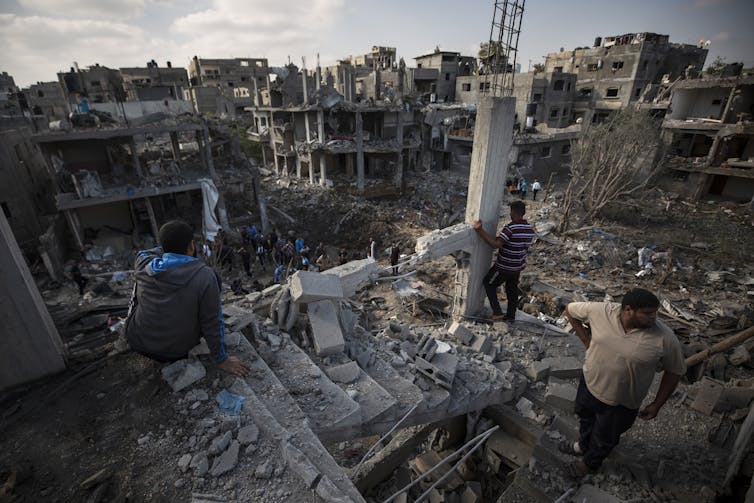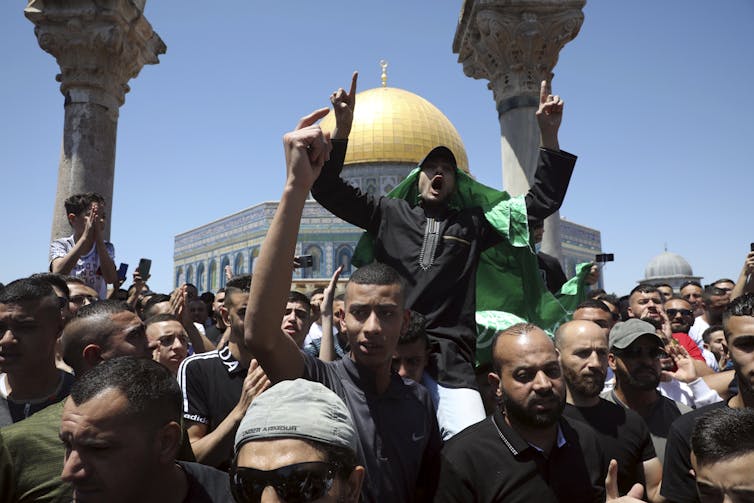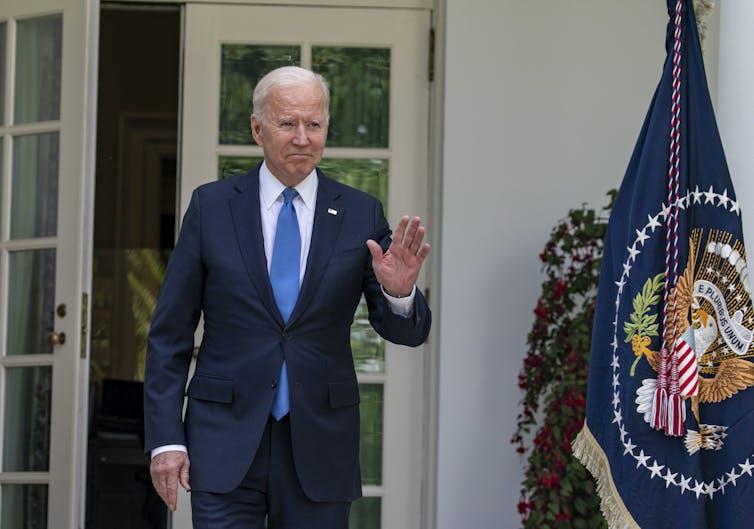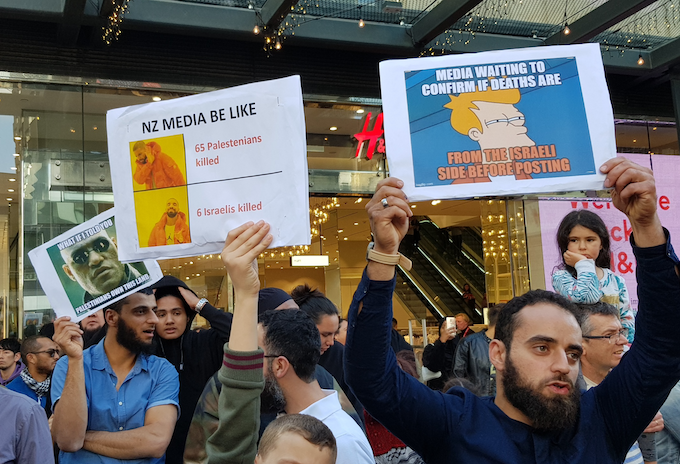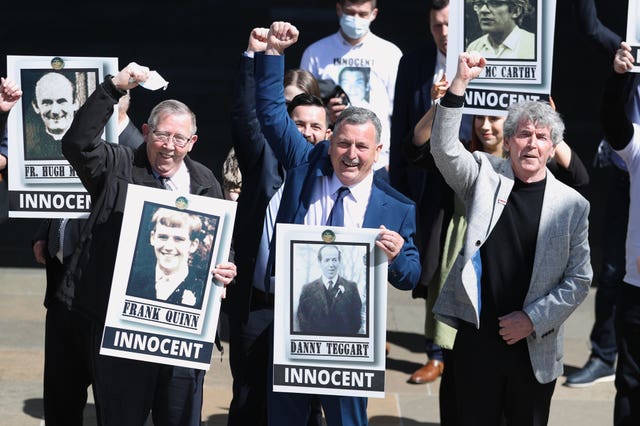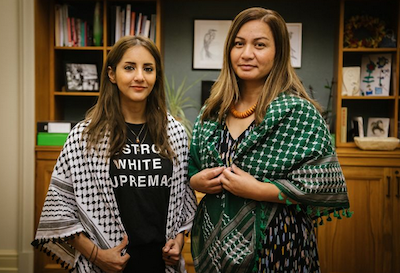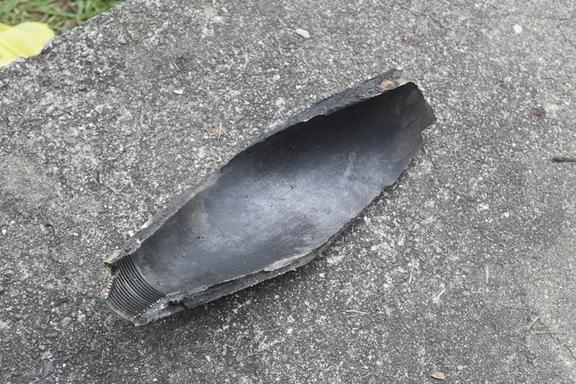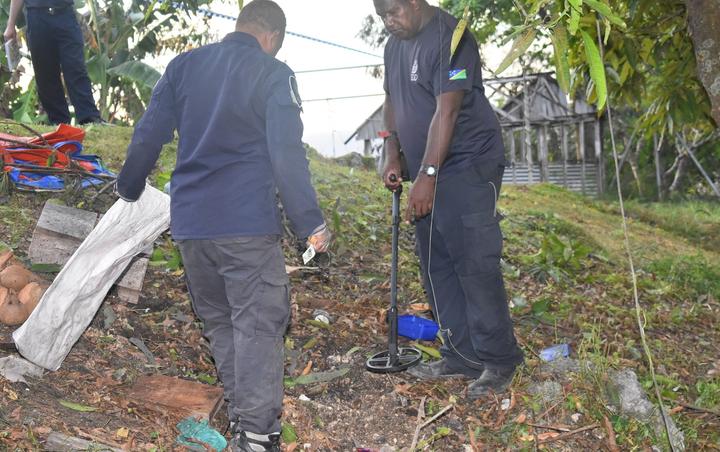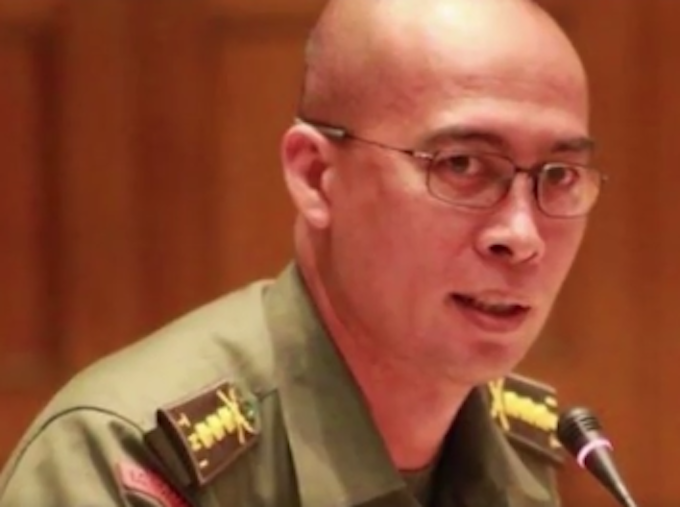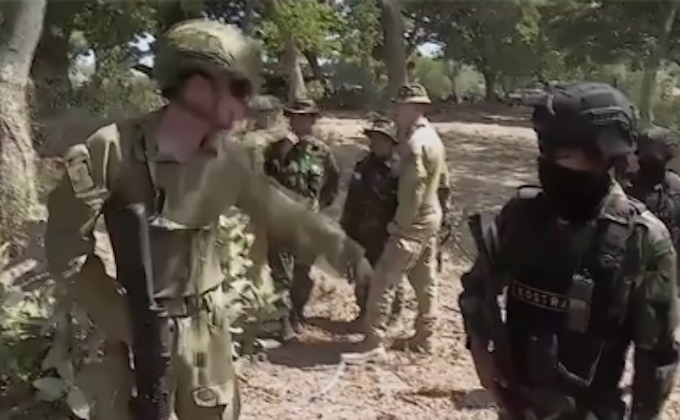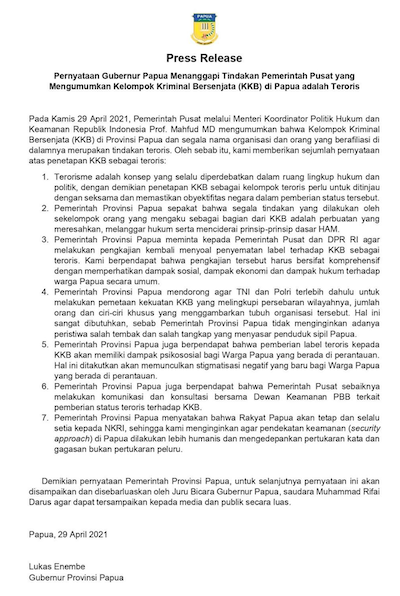
When it comes to trade in the tools of death and destruction, no one tops the United States of America.
In April of this year, the Stockholm International Peace Research Institute (SIPRI) published its annual analysis of trends in global arms sales and the winner — as always — was the U.S. of A. Between 2016 and 2020, this country accounted for 37% of total international weapons deliveries, nearly twice the level of its closest rival, Russia, and more than six times that of Washington’s threat du jour, China.
Sadly, this was no surprise to arms-trade analysts. The U.S. has held that top spot for 28 of the past 30 years, posting massive sales numbers regardless of which party held power in the White House or Congress. This is, of course, the definition of good news for weapons contractors like Boeing, Raytheon, and Lockheed Martin, even if it’s bad news for so many of the rest of us, especially those who suffer from the use of those arms by militaries in places like Saudi Arabia, Egypt, Israel, the Philippines, and the United Arab Emirates. The recent bombing and leveling of Gaza by the U.S.-financed and supplied Israeli military is just the latest example of the devastating toll exacted by American weapons transfers in these years.
While it is well known that the United States provides substantial aid to Israel, the degree to which the Israeli military relies on U.S. planes, bombs, and missiles is not fully appreciated. According to statistics compiled by the Center for International Policy’s Security Assistance Monitor, the United States has provided Israel with $63 billion in security assistance over the past two decades, more than 90% of it through the State Department’s Foreign Military Financing, which provides funds to buy U.S. weaponry. But Washington’s support for the Israeli state goes back much further. Total U.S. military and economic aid to Israel exceeds $236 billion (in inflation-adjusted 2018 dollars) since its founding — nearly a quarter of a trillion dollars.
King of the Arms Dealers
Donald Trump, sometimes referred to by President Joe Biden as “the other guy,” warmly embraced the role of arms-dealer-in-chief and not just by sustaining massive U.S. arms aid for Israel, but throughout the Middle East and beyond. In a May 2017 visit to Saudi Arabia — his first foreign trip — Trump would tout a mammoth (if, as it turned out, highly exaggerated) $110-billion arms deal with that kingdom.
On one level, the Saudi deal was a publicity stunt meant to show that President Trump could, in his own words, negotiate agreements that would benefit the U.S. economy. His son-in-law, Jared Kushner, a pal of Prince Mohammed Bin Salman (MBS), the architect of Saudi Arabia’s devastating intervention in Yemen, even put in a call to then-Lockheed Martin CEO Marillyn Hewson. His desire: to get a better deal for the Saudi regime on a multibillion-dollar missile defense system that Lockheed was planning to sell it. The point of the call was to put together the biggest arms package imaginable in advance of his father-in-law’s trip to Riyadh.
When Trump arrived in Saudi Arabia to immense local fanfare, he milked the deal for all it was worth. Calling the future Saudi sales “tremendous,” he assured the world that they would create “jobs, jobs, jobs” in the United States.
That arms package, however, did far more than burnish Trump’s reputation as a deal maker and jobs creator. It represented an endorsement of the Saudi-led coalition’s brutal war in Yemen, which has now resulted in the deaths of nearly a quarter of a million people and put millions of others on the brink of famine.
And don’t for a second think that Trump was alone in enabling that intervention. The kingdom had received a record $115 billion in arms offers — notifications to Congress that don’t always result in final sales — over the eight years of the Obama administration, including for combat aircraft, bombs, missiles, tanks, and attack helicopters, many of which have since been used in Yemen. After repeated Saudi air strikes on civilian targets, the Obama foreign-policy team finally decided to slow Washington’s support for that war effort, moving in December 2016 to stop a multibillion-dollar bomb sale. Upon taking office, however, Trump reversed course and pushed that deal forward, despite Saudi actions that Congressman Ted Lieu (D-CA) said “look like war crimes to me.”
Trump made it abundantly clear, in fact, that his reasons for arming Saudi Arabia were anything but strategic. In an infamous March 2018 White House meeting with Mohammed bin Salman, he even brandished a map of the United States to show which places were likely to benefit most from those Saudi arms deals, including election swing states Pennsylvania, Michigan, and Wisconsin. He doubled down on that economic argument after the October 2018 murder and dismemberment of Saudi journalist and Washington Post columnist Jamal Khashoggi at that country’s consulate in Istanbul, Turkey, even as calls to cut off sales to the regime mounted in Congress. The president made it clear then that jobs and profits, not human rights, were paramount to him, stating:
“$110 billion will be spent on the purchase of military equipment from Boeing, Lockheed Martin, Raytheon, and many other great U.S. defense contractors. If we foolishly cancel these contracts, Russia and China would be the enormous beneficiaries — and very happy to acquire all of this newfound business. It would be a wonderful gift to them directly from the United States!”
And so it went. In the summer of 2019 Trump vetoed an effort by Congress to block an $8.1-billion arms package that included bombs and support for the Royal Saudi Air Force and he continued to back the kingdom even in his final weeks in office. In December 2020, he offered more than $500 million worth of bombs to that regime on the heels of a $23-billion package to the United Arab Emirates (UAE), its partner-in-crime in the Yemen war.
Saudi Arabia and the UAE weren’t the only beneficiaries of Trump’s penchant for selling weapons. According to a report by the Security Assistance Monitor at the Center for International Policy, his administration made arms sales offers of more than $110 billion to customers all over the world in 2020, a 75% increase over the yearly averages reached during the Obama administration, as well as in the first three years of his tenure.
Will Biden Be Different?
Advocates of reining in U.S. weapons trafficking took note of Joe Biden’s campaign-trail pledge that, if elected, he would not “check our values at the door” in deciding whether to continue arming the Saudi regime. Hopes were further raised when, in his first foreign policy speech as president, he announced that his administration would end “support for offensive operations in Yemen” along with “relevant arms sales.”
That statement, of course, left a potentially giant loophole on the question of which weapons would be considered in support of “offensive operations,” but it did at least appear to mark a sharp departure from the Trump era. In the wake of Biden’s statement, arms sales to Saudi Arabia and the UAE were indeed put on hold, pending a review of their potential consequences.
Three months into Biden’s term, however, the president’s early pledge to rein in damaging arms deals are already eroding. The first blow was the news that the administration would indeed move forward with a $23-billion arms package to the UAE, including F-35 combat aircraft, armed drones, and a staggering $10 billion worth of bombs and missiles. The decision was ill-advised on several fronts, most notably because of that country’s role in Yemen’s brutal civil war. There, despite scaling back its troops on the ground, it continues to arm, train, and finance 90,000 militia members, including extremist groups with links to the Yemen-based Al Qaeda in the Arabian Peninsula. The UAE has also backed armed opposition forces in Libya in violation of a United Nations embargo, launched drone strikes there that killed scores of civilians, and cracked down on dissidents at home and abroad. It regularly makes arbitrary arrests and uses torture. If arming the UAE isn’t a case of “checking our values at the door,” it’s not clear what is.
To its credit, the Biden administration committed to suspending two Trump bomb deals with Saudi Arabia. Otherwise, it’s not clear what (if any) other pending Saudi sales will be deemed “offensive” and blocked. Certainly, the new administration has allowed U.S. government personnel and contractors to help maintain the effectiveness of the Saudi Air Force and so has continued to enable ongoing air strikes in Yemen that are notorious for killing civilians. The Biden team has also failed to forcefully pressure the Saudis to end their blockade of that country, which United Nations agencies have determined could put 400,000 Yemeni children at risk of death by starvation in the next year.
In addition, the Biden administration has cleared a sale of anti-ship missiles to the Egyptian regime of Abdel Fattah al-Sisi, the most repressive government in that nation’s history, helmed by the man Donald Trump referred to as “my favorite dictator.” The missiles themselves are in no way useful for either internal repression or that country’s scorched-earth anti-terror campaign against rebels in its part of the Sinai peninsula — where civilians have been tortured and killed, and tens of thousands displaced from their homes — but the sale does represent a tacit endorsement of the regime’s repressive activities.
Guns, Anyone?
While Biden’s early actions have undermined promises to take a different approach to arms sales, the story isn’t over. Key members of Congress are planning to closely monitor the UAE sale and perhaps intervene to prevent the delivery of the weapons. Questions have been raised about what arms should go to Saudi Arabia and reforms that would strengthen Congress’s role in blocking objectionable arms transfers are being pressed by at least some members of the House and the Senate.
One area where President Biden could readily begin to fulfill his campaign pledge to reduce the harm to civilians from U.S. arms sales would be firearms exports. The Trump administration significantly loosened restrictions and regulations on the export of a wide range of guns, including semi-automatic firearms and sniper rifles. As a result, such exports surged in 2020, with record sales of more than 175,000 military rifles and shotguns.
In a distinctly deregulatory mood, Trump’s team moved sales of deadly firearms from the jurisdiction of the State Department, which had a mandate to vet any such deals for possible human-rights abuses, to the Commerce Department, whose main mission was simply to promote the export of just about anything. Trump’s “reforms” also eliminated the need to pre-notify Congress on any major firearms sales, making it far harder to stop deals with repressive regimes.
As he pledged to do during his presidential campaign, President Biden could reverse Trump’s approach without even seeking Congressional approval. The time to do so is now, given the damage such gun exports cause in places like the Philippines and Mexico, where U.S.-supplied firearms have been used to kill thousands of civilians, while repressing democratic movements and human-rights defenders.
Who Benefits?
Beyond the slightest doubt, a major — or perhaps even the major — obstacle to reforming arms sales policies and practices is the weapons industry itself. That includes major contractors like Boeing, Lockheed Martin, Raytheon Technologies, and General Dynamics that produce fighter planes, bombs, armored vehicles, and other major weapons systems, as well as firearms makers like Sig Sauer.
Raytheon stands out in this crowd because of its determined efforts to push through bomb sales to Saudi Arabia and the deep involvement of its former (or future) employees with the U.S. government. A former Raytheon lobbyist, Charles Faulkner, worked in the Trump State Department’s Office of Legal Counsel and was involved in deciding that Saudi Arabia was not — it was! — intentionally bombing civilians in Yemen. He then supported declaring a bogus “emergency” to ram through the sale of bombs and of aircraft support to Saudi Arabia.
Raytheon has indeed insinuated itself in the halls of government in a fashion that should be deeply troubling even by the minimalist standards of the twenty-first-century military-industrial complex. Former Trump defense secretary Mark Esper was Raytheon’s chief in-house lobbyist before joining the administration, while current Biden defense secretary Lloyd Austin served on Raytheon’s board of directors. While Austin has pledged to recuse himself from decisions involving the company, it’s a pledge that will prove difficult to verify.
Arms sales are Big Business — the caps are a must! — for the top weapons makers. Lockheed Martin gets roughly one-quarter of its sales from foreign governments and Raytheon five percent of its revenue from Saudi sales. American jobs allegedly tied to weapons exports are always the selling point for such dealings, but in reality, they’ve been greatly exaggerated.
At most, arms sales account for just more than one-tenth of one percent of U.S. employment. Many such sales, in fact, involve outsourcing production, in whole or in part, to recipient nations, reducing the jobs impact here significantly. Though it’s seldom noted, virtually any other form of spending creates more jobs than weapons production. In addition, exporting green-technology products would create far larger global markets for U.S. goods, should the government ever decide to support them in anything like the way it supports the arms industry.
Given what’s at stake for them economically, Raytheon and its cohorts spend vast sums attempting to influence both parties in Congress and any administration. In the past two decades, defense companies, led by the major arms exporting firms, spent $285 million in campaign contributions alone and $2.5 billion on lobbying, according to statistics gathered by the Center for Responsive Politics. Any changes in arms export policy will mean forcefully taking on the arms lobby and generating enough citizen pressure to overcome its considerable influence in Washington.
Given the political will to do so, there are many steps the Biden administration and Congress could take to rein in runaway arms exports, especially since such deals are uniquely unpopular with the public. A September 2019 poll by the Chicago Council on Global Affairs, for example, found that 70% of Americans think arms sales make the country less safe.
The question is: Can such public sentiment be mobilized in favor of actions to stop at least the most egregious cases of U.S. weapons trafficking, even as the global arms trade rolls on? Selling death should be no joy for any country, so halting it is a goal well worth fighting for. Still, it remains to be seen whether the Biden administration will ever limit weapons sales or if it will simply continue to promote this country as the world’s top arms exporter of all time.
This post was originally published on Latest – Truthout.


 (@joinaunionpls)
(@joinaunionpls) 
 (@DefenceHQ)
(@DefenceHQ) 
